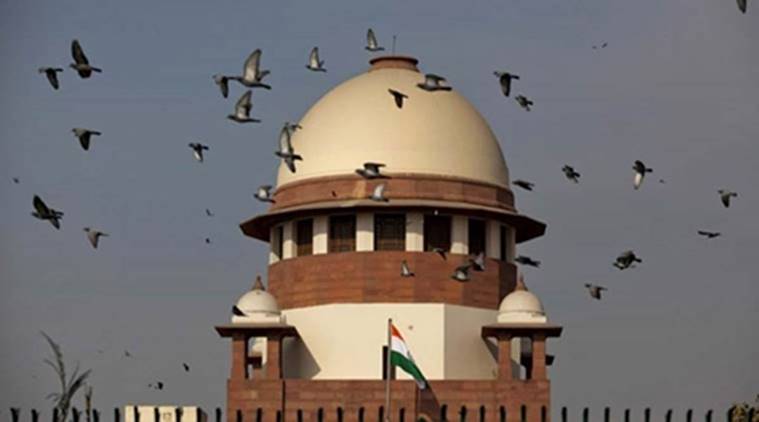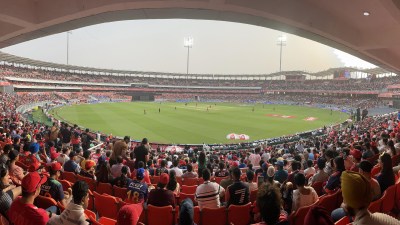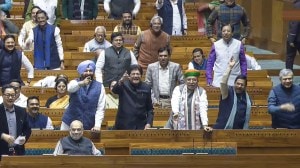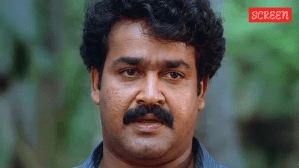 Supreme Court (File Photo)
Supreme Court (File Photo)
While hearing the challenge to the Aadhaar Act on Tuesday, the Supreme Court decided that it must first consider the question of whether the right to privacy is a fundamental right guaranteed by the Constitution. The judges noted that two earlier judgements of the court — M P Sharma’s case in 1954 and Kharak Singh’s case in 1962 — had held that privacy was not a fundamental right.
“It is essential for us to determine whether there is a fundamental right to privacy in the Indian Constitution. Determination of the question would essentially entail whether the decisions in M P Sharma by an eight-judge Bench and Kharak Singh by a six-judge Bench that there is no such fundamental right is the correct expression of constitutional provisions,” the court recorded in its order. “That needs to be settled. If not, we can’t go forward,” Chief Justice of India J S Khehar remarked. A nine-judge Bench will now decide this question. But what were the M P Sharma and Kharak Singh cases?

M P Sharma & Others vs Satish Chandra, District Magistrate, Delhi & Others
March 15, 1954
The case related to search and seizure of documents of some Dalmia group companies following investigations into the affairs of Ms Dalmia Jain Airways Ltd, a group concern, which was registered in July 1946 and went into liquidation in June 1952. The probe indicated malpractices within the company and attempts to conceal from shareholders the actual state of affairs by submitting false accounts and balance sheets. An FIR was registered on November 19, 1953, and a request was made to the District Magistrate, Delhi, for search warrants.
The DM issued the warrants, and searches were carried out at 34 places belonging to the group. Voluminous records were seized. In writ petitions before the Supreme Court, the aggrieved parties challenged the constitutional validity of the searches saying their private records were taken away, and claimed that it violated their fundamental rights under Articles 19(1)(f) — right to acquire, hold and dispose of property — and 20(3) — protection against self incrimination.
In its judgment dated March 15, 1954, the eight-judge Bench comprising the then Chief Justice Mehar Chand Mahajan and Justices B Jagannadhadas, Ghulam Hasan, Natwarlal H Bhagwati, T L Venkatarama Aiyyar, B K Mukherjea, Sudhi Ranjan Das and Vivian Bose held that “a power of search and seizure is, in any system of jurisprudence, an overriding power of the State for the protection of social security and that power is necessarily regulated by law. When the Constitution makers have thought fit not to subject such regulation to constitutional limitations by recognition of the fundamental right to privacy, analogous to the American Fourth Amendment, there is no justification for importing into it, a totally different fundamental right by some process of strained construction.”
Kharak Singh vs The State of U P & Others
December 18, 1962
Story continues below this ad
Petitioner Kharak Singh was challaned in a case of dacoity, but was released as there was no evidence against him. Uttar Pradesh Police subsequently opened a “history sheet” against him and brought him under “surveillance”. This was done in exercise of the powers under Chapter XX of the Uttar Pradesh Police Regulations. Regulation 236 authorised six measures of “surveillance”: (a) secret picketing of the house or approaches to the house of suspects; (b) domiciliary visits at night; (c) through periodic inquiries by officers not below the rank of Sub-Inspector into repute, habits, associations, income, expenses and occupation; (d) reporting by constables and chaukidars of movements and absence from home; (e) verification of movements and absences by means of inquiry slips; and (f) collection and record on a history sheet of all information bearing on conduct.
In his writ petition, Singh challenged the constitutional validity of Chapter XX, and the powers conferred upon police officials thereunder on the ground that they violated his fundamental rights under Articles 19(1)(d) — right to freedom of movement — and 21 — protection of life and personal liberty.
His petition was adjudicated by a six-judge Bench comprising the then Chief Justice Bhuvaneshwar P Sinha and Justices N Rajagopala Ayyangar, Syed Jaffer Imam, K Subbarao, J C Shah and J R Mudholkar. In the judgment delivered on December 18, 1962, the Bench struck down Clause (b) — domiciliary visits at night — of Regulation 236, but upheld the rest. The Bench also held that “the right of privacy is not a guaranteed right under our Constitution, and therefore the attempt to ascertain the movements of an individual is merely a manner in which privacy is invaded and is not an infringement of a fundamental right guaranteed in Part III (fundamental rights)”.

 Supreme Court (File Photo)
Supreme Court (File Photo)





































